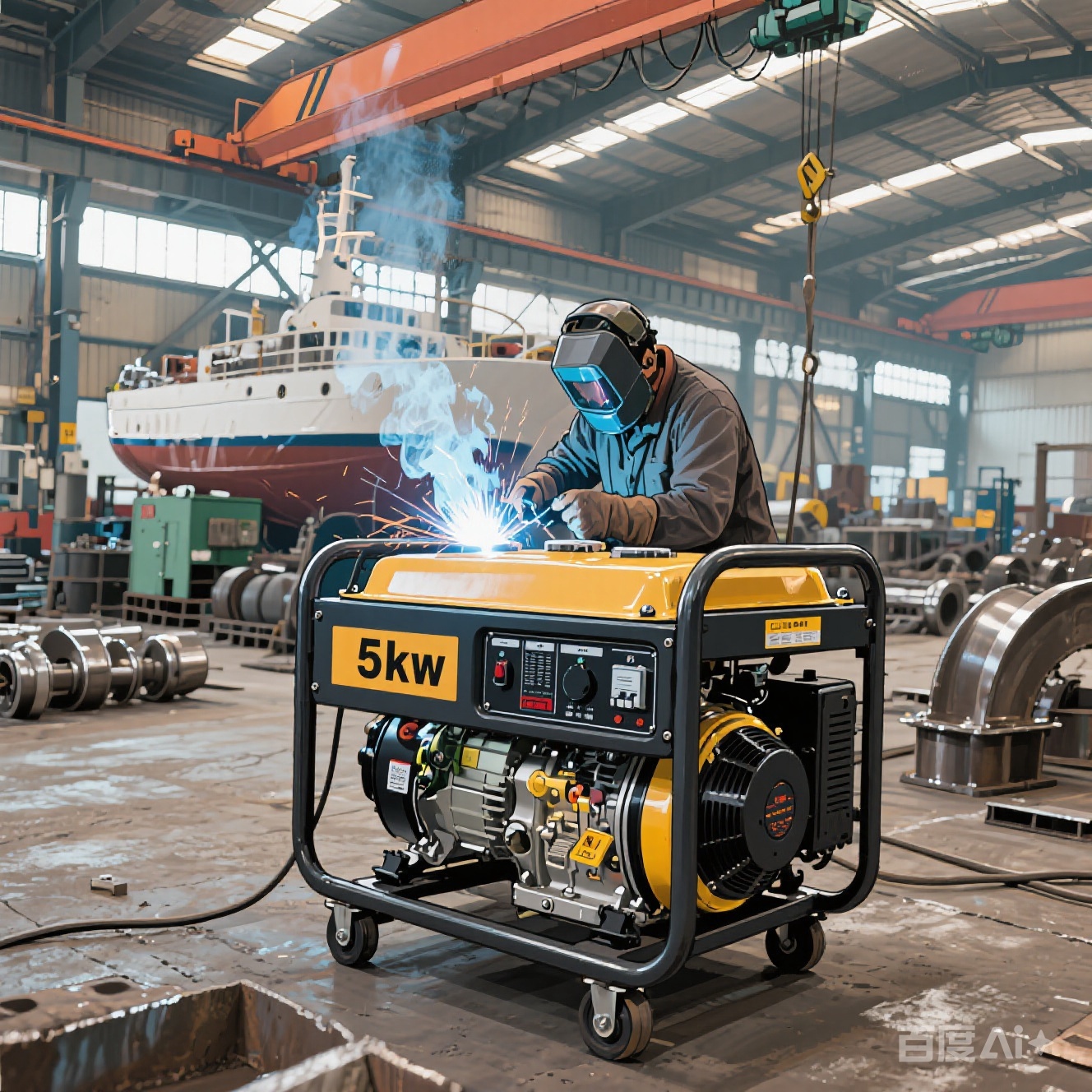Whatsapp:+85263563404 Email:Demi@cndameng.com
17
2025
-
07
The Ultimate Guide to Welder Generators: Types, Features & Uses
Author:
If you need to weld in remote areas, on construction sites, or anywhere without easy access to electricity, a welder generator is essential. These handy machines combine the ability to weld with power generation, making them perfect for tackling tough jobs while keeping your tools energized. Whether you’re a professional welder, managing a construction team, or a DIY enthusiast, knowing the basics about welder generators will help you find the right one for your needs.

What Is a Welder Generator?
A welder generator is a machine that does two important things: it helps you weld and provides electricity. It can power different types of welding processes—like Stick, MIG, TIG, and Flux-Cored welding—and also has outlets to provide electricity for tools, lights, or other equipment. Most models are portable, often featuring wheels and handles, so you can easily take them anywhere you need to work, even where there’s no electrical outlet available.
Types of Welder Generators: Which One Is Right for You?
Welder generators come in three main types, each suited for different tasks:
1. Diesel Welder Generators
• Best For: Long, heavy-duty jobs in industrial settings like construction or mining.
• Advantages:
◦ Very fuel-efficient, which saves money over time.
◦ Built to last, even in tough conditions.
◦ Can provide a lot of power, making it great for working with thick materials.
• Considerations: They can be noisy and need regular maintenance.
2. Gasoline Welder Generators
• Best For: Lighter, occasional jobs with quick refueling.
• Advantages:
◦ Typically cheaper and lighter, making them easy to carry.
◦ Gasoline is easy to find.
◦ Good power output for small repairs or projects.
• Considerations: They aren’t as fuel-efficient as diesel models, so they might cost more in the long run.
3. Inverter Welder Generators
• Best For: More precise welding work and use in quiet areas.
• Advantages:
◦ Highly efficient and produces clean power, safe for sensitive electronics.
◦ Very quiet, perfect for residential areas.
◦ Compact and requires less maintenance.
• Considerations: They may have a higher upfront cost, but save money on fuel and upkeep over time.
Key Features of a Quality Welder Generator
• Dual Functionality: Allows you to switch between welding and generating electricity without needing separate machines.
• Portability: Easy to move with wheels and comfortable handles.
• Safety First: Comes with built-in safety features to prevent overheating and other issues.
• Auxiliary Outlets: Multiple sockets for powering other tools and equipment at the same time, helping you work more efficiently.
Top Uses for Welder Generators
• Construction & Fabrication: Great for welding steel structures or making metal parts right where you need them, without relying on grid power.
• Emergency Repairs: Quickly fix equipment or machinery, even in remote locations.
• Off-Grid Operations: Perfect for jobs in mining, agriculture, or events outdoors where traditional electricity isn’t available.
• Power Hub: Provides electricity for tools, battery charging, or temporary lights during long projects.
Frequently Asked Questions
• What welding methods can they handle?
◦ Most welder generators can accommodate Stick, MIG, TIG, and Flux-Cored welding. Always check the specifications to match your needs.
• How do I choose the right size?
◦ Think about the thickness of the materials you’ll be working with and the power needed for your tools.
• What maintenance is needed?
◦ Basic tasks include checking oil levels, replacing filters, and inspecting cables. Follow the manufacturer’s recommendations for best performance.
• What safety precautions should I take?
◦ Always work in well-ventilated spaces, wear protective gear like gloves and helmets, and make sure everything is properly grounded.
Whether you're taking on heavy-duty industrial projects or need backup for off-the-grid repairs, a welder generator is a wise investment. By choosing the right type—diesel, gasoline, or inverter—you can ensure it fits your specific needs while focusing on features that will make your work safer and easier.
#WelderGenerator,#DualFunctionTools,#PortableWelding,#IndustrialPower,#OffGridPower,#WeldingEquipment,#GeneratorWelderCombo,#ConstructionTools,#EmergencyPower,#DieselGenerator,#GasolineWelder,#InverterGenerator,#FieldWelding,#WorksitePower,#MetalFabrication,#PowerEquipment,WeldingSolutions,#RemoteWorkTools,#HeavyDutyWelding,#JobSiteEssentials
Latest Blog
2025-10-07
Cast Iron vs Aluminum Water Pumps: Technical Guide for Industrial and Agricultural Applications
Choosing the correct pump housing material is a foundational decision for pump manufacturers and end-users. This guide compares cast iron and aluminum water pumps across mechanical properties, corrosion resistance, thermal behavior, maintenance cost, and typical application scenarios. Use this guide to match pump material to operating environment and customer priorities.

